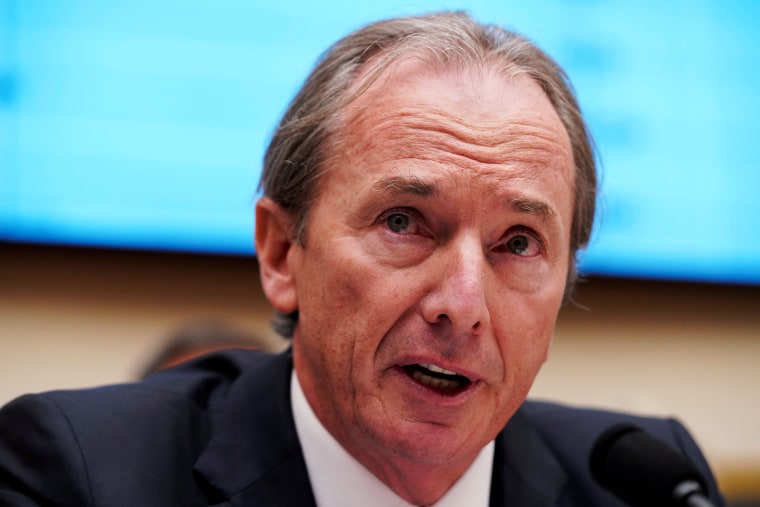Wall Street was in the hot seat Wednesday when the CEOs of Wells Fargo, Goldman Sachs, Citigroup, JPMorgan Chase, Bank of America and Morgan Stanley testified in a virtual meeting of the Senate Banking Committee. Led by Chairman Sen. Sherrod Brown, D-Ohio, lawmakers fired off questions about diversity, worker organizing and shareholder activism in addition to more finance-specific topics like share buybacks, business lending, inflation and the economic recovery.
While bank executives are used to being grilled by Congressional Democrats, many of the more pointed questions on Wednesday came from Republicans like Banking Committee ranking member Sen. Pat Toomey, R-Pa., who decried what he characterized as banks’ bending to “wokeism” and left-wing “attacks on capitalism” in his opening statement. In a reference to banks’ speaking out on restrictive state voting legislation, Toomey said those kinds of issues should be “left to elected lawmakers.”
Sen. Tim Scott, R-S.C., the Senate’s lone Black Republican, also took aim at what he dubbed “woke capitalism,” which, he said, “seems to be running amok.” He used much of his allotted time pressing the executives to articulate exactly how Georgia’s new voting law — which critics say restricts access to the ballot box, particularly for voters of color — discriminates against Black voters. That bill, when signed into law by Georgia’s governor in March, triggered swift pushback not only from banks but from corporate America more broadly, drawing criticism from CEOs of companies as diverse as Delta Air Lines and Coca-Cola.
In addition to commenting about political motivations in banks’ decision making processes, Sen. Richard Shelby, R-Al., also raised the issue of federal debt and its potential impact on the economy and the banking system. JPMorgan Chase CEO Jamie Dimon responded that the current level of federal debt, at 102 percent of GDP is “not an immediate concern,” although he added, “It will become an issue” in the future.
Dimon repeated his support for a carbon tax, revisiting a theme he had addressed in Chase’s annual shareholder letter earlier this spring. In that letter, Dimon also advocated for what he characterized a national “Marshall Plan” to invest in infrastructure, education and job training. Dimon returned to that theme on Wednesday. “Infrastructure is critical,” he said, even as he warned Senators like Jon Ossoff, D-Ga., that the economic momentum of infrastructure spending could be derailed by excessive regulation.
Sen. Robert Menendez, D-N.J., grilled the executives about expanding access to the financial mainstream, saying big banks have a responsibility to offer low-cost products and services for low-income Americans — and chastised them for not doing more to engage with small businesses, particularly minority-owned businesses, in the aftermath of the pandemic.
Sen. Elizabeth Warren, D-Mass., blasted banks’ fee-collection practices, pointing out that low- and moderate-income bank customers and minorities are disproportionately impacted by overdraft fees, which hit a record high of $33.47 in 2020, according to Bankrate. She asked why banks didn’t automatically suspend overdraft fees for customers during the pandemic even though regulators waived similar Federal Reserve fees banks typically have to pay.
"No matter how you try to spin it, this past year has shown that corporate profits are more important to your bank than offering just a little help to struggling families even when we're in the middle of a worldwide crisis," Warren said, saying claims that the bank helped customers were "a bunch of baloney."
